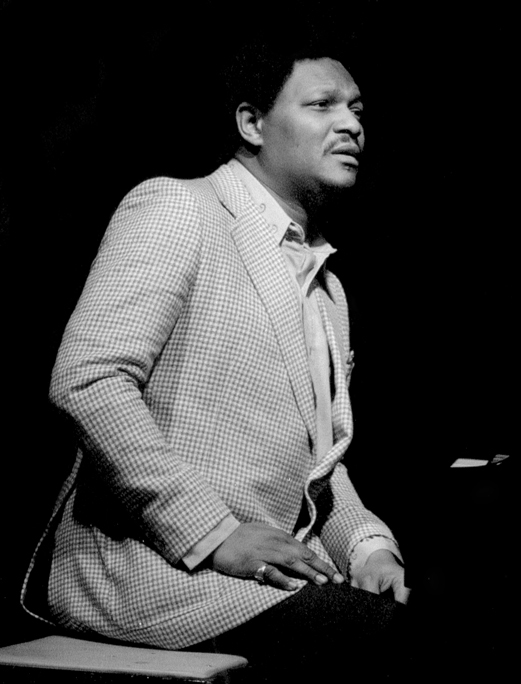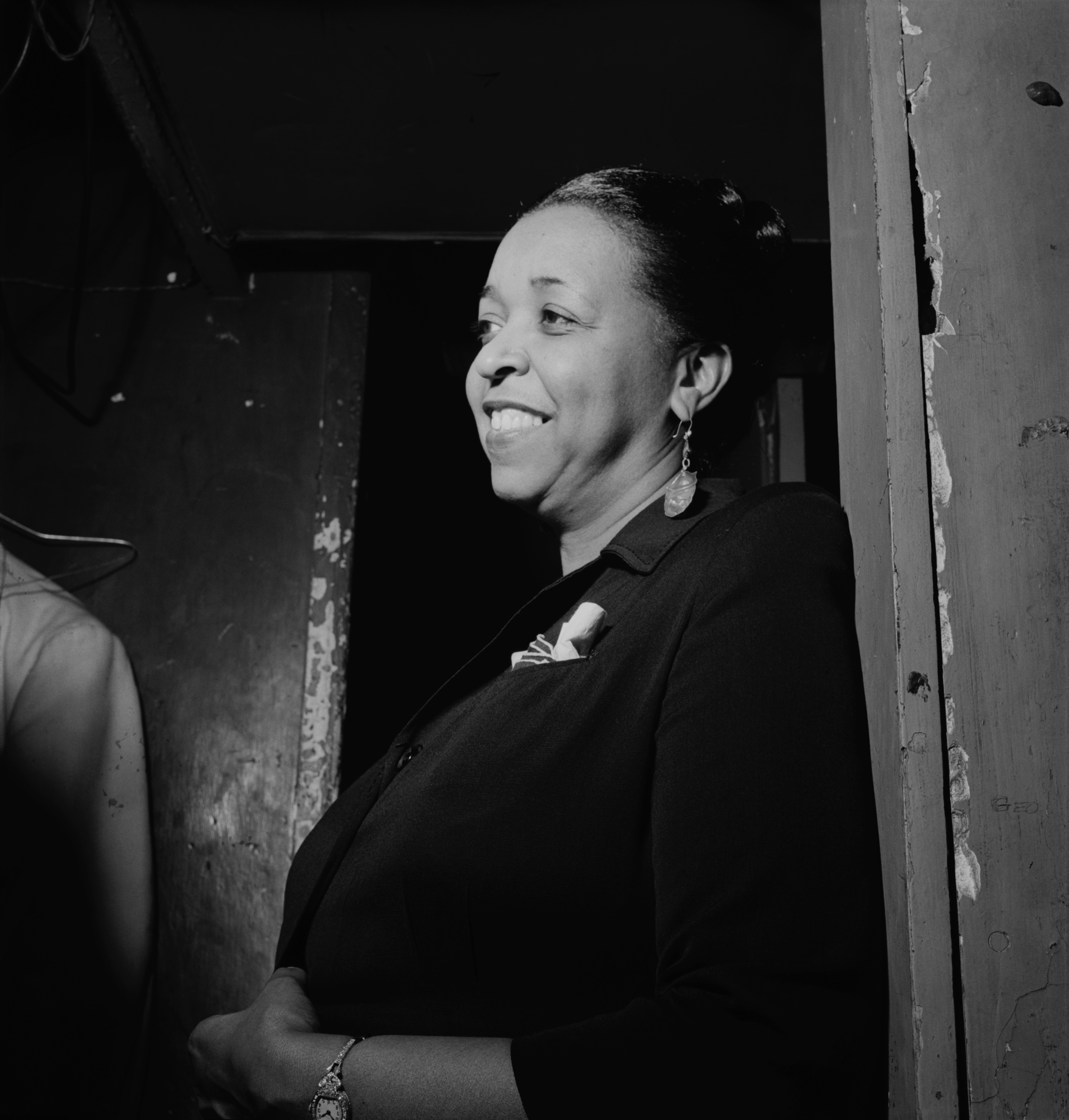|
Vision (McCoy Tyner Song)
''Vision'' is a jazz instrumental composed by McCoy Tyner which first appeared on Tyner's 1969 album ''Expansions (McCoy Tyner album), Expansions''. It was the signature tune for guitarist Lenny Breau who recorded it several times, including on his albums ''The Legendary Lenny Breau... Now!'', ''Live at Bourbon St.'', and ''The Living Room Tapes, Vol. 2''. References Jazz songs 1969 songs {{1960s-jazz-composition-stub ... [...More Info...] [...Related Items...] OR: [Wikipedia] [Google] [Baidu] |
Jazz
Jazz is a music genre that originated in the African-American communities of New Orleans, Louisiana in the late 19th and early 20th centuries, with its roots in blues and ragtime. Since the 1920s Jazz Age, it has been recognized as a major form of musical expression in traditional and popular music. Jazz is characterized by swing and blue notes, complex chords, call and response vocals, polyrhythms and improvisation. Jazz has roots in European harmony and African rhythmic rituals. As jazz spread around the world, it drew on national, regional, and local musical cultures, which gave rise to different styles. New Orleans jazz began in the early 1910s, combining earlier brass band marches, French quadrilles, biguine, ragtime and blues with collective polyphonic improvisation. But jazz did not begin as a single musical tradition in New Orleans or elsewhere. In the 1930s, arranged dance-oriented swing big bands, Kansas City jazz (a hard-swinging, bluesy, improvis ... [...More Info...] [...Related Items...] OR: [Wikipedia] [Google] [Baidu] |
Instrumental
An instrumental is a recording normally without any vocals, although it might include some inarticulate vocals, such as shouted backup vocals in a big band setting. Through semantic widening, a broader sense of the word song may refer to instrumentals. The music is primarily or exclusively produced using musical instruments. An instrumental can exist in music notation, after it is written by a composer; in the mind of the composer (especially in cases where the composer themselves will perform the piece, as in the case of a blues solo guitarist or a folk music fiddle player); as a piece that is performed live by a single instrumentalist or a musical ensemble, which could range in components from a duo or trio to a large big band, concert band or orchestra. In a song that is otherwise sung, a section that is not sung but which is played by instruments can be called an instrumental interlude, or, if it occurs at the beginning of the song, before the singer starts t ... [...More Info...] [...Related Items...] OR: [Wikipedia] [Google] [Baidu] |
McCoy Tyner
Alfred McCoy Tyner (December 11, 1938March 6, 2020) was an American jazz pianist and composer known for his work with the John Coltrane Quartet (from 1960 to 1965) and his long solo career afterwards. He was an NEA Jazz Master and five-time Grammy award winner. Unlike many of the jazz keyboardists of his generation, Tyner very rarely incorporated electric keyboards or synthesizers into his work. Tyner has been widely imitated, and is one of the most recognizable and influential pianists in jazz history. Early life and family Tyner was born on December 11, 1938, in Philadelphia, Pennsylvania, the eldest of three children of Jarvis and Beatrice (Stevenson) Tyner. His younger brother Jarvis Tyner was the executive vice-chairman of the Communist Party USA. Tyner was encouraged to study piano by his mother, who had installed a piano at her beauty salon. He began piano lessons at age 13 at the Granoff School of Music where he had also studied music theory and harmony, and music bec ... [...More Info...] [...Related Items...] OR: [Wikipedia] [Google] [Baidu] |
Expansions (McCoy Tyner Album)
''Expansions'' is the tenth album by jazz pianist McCoy Tyner and his fourth released on the Blue Note label. It was recorded in August 1968 and features performances by Tyner with trumpeter Woody Shaw, alto saxophonist Gary Bartz, tenor saxophonist Wayne Shorter, bassist Ron Carter (here playing cello), bassist Herbie Lewis and drummer Freddie Waits. Reception The AllMusic review by Scott Yanow stated: "The stimulating music falls between advanced hard bop and the avant-garde, pushing and pulling at the boundaries of modern mainstream jazz". Track listing :''All compositions by McCoy Tyner, except as indicated.'' # "Vision" - 12:18 # "Song of Happiness" - 12:00 # "Smitty's Place" - 5:21 # "Peresina" - 10:21 # "I Thought I'd Let You Know" (Cal Massey) - 6:25 Personnel *McCoy Tyner – piano *Woody Shaw – trumpet *Gary Bartz – alto saxophone, wooden flute (on track 2) *Wayne Shorter – tenor saxophone, clarinet (on track 2) * Ron Carter – cello *Herbie Lewis – bass ... [...More Info...] [...Related Items...] OR: [Wikipedia] [Google] [Baidu] |
Lenny Breau
Leonard Harold Breau (August 5, 1941 – August 12, 1984) was an American-Canadian guitarist. He blended many styles of music, including jazz, country, classical, and flamenco. Inspired by country guitarists like Chet Atkins, Breau used fingerstyle techniques not often used in jazz guitar. By using a seven-string guitar and approaching the guitar like a piano, he opened up possibilities for the instrument. Biography Early life Breau was born August 5, 1941, in Auburn, Maine, and moved with his family to Moncton, New Brunswick in 1948. His francophone parents, Harold Breau and Betty Cody, were professional country and western musicians who performed and recorded from the mid-1930s until the mid-1970s. From the mid to late 1940s they played summer engagements in southern New Brunswick, advertising their performances by playing free programs on radio station CKCW Moncton. Lenny began playing guitar at the age of eight. When he was twelve, he started a small band with friends ... [...More Info...] [...Related Items...] OR: [Wikipedia] [Google] [Baidu] |
The Legendary Lenny Breau
''The'' () is a grammatical article in English, denoting persons or things already mentioned, under discussion, implied or otherwise presumed familiar to listeners, readers, or speakers. It is the definite article in English. ''The'' is the most frequently used word in the English language; studies and analyses of texts have found it to account for seven percent of all printed English-language words. It is derived from gendered articles in Old English which combined in Middle English and now has a single form used with pronouns of any gender. The word can be used with both singular and plural nouns, and with a noun that starts with any letter. This is different from many other languages, which have different forms of the definite article for different genders or numbers. Pronunciation In most dialects, "the" is pronounced as (with the voiced dental fricative followed by a schwa) when followed by a consonant sound, and as (homophone of pronoun ''thee'') when followed by a ... [...More Info...] [...Related Items...] OR: [Wikipedia] [Google] [Baidu] |
Live At Bourbon St
Live may refer to: Arts, entertainment, and media Films * ''Live!'' (2007 film), 2007 American film * ''Live'' (2014 film), a 2014 Japanese film *'' ''Live'' (Apocalyptica DVD) Music *Live (band), American alternative rock band * List of albums titled ''Live'' Extended plays * ''Live EP'' (Anal Cunt album) * ''Live EP'' (Breaking Benjamin EP) * ''Live'' (Roxus EP) * ''Live'' (The Smithereens EP) *''CeCe Peniston (EP Live)'' *''Ozzy Osbourne Live E.P.'', 1980 *''Live EP (Live at Fashion Rocks)'', by David Bowie * ''Live EP'' (The Jam EP) Songs * "Live" (Russian song) * "Live" (Superfly song) * "Live" (The Merry-Go-Round song) Radio * BBC Radio 5 Live * CILV-FM, branded LiVE 88.5, a radio station in Ottawa, Canada Television * ''Live'' (South Korean TV series), a 2018 South Korean television series * ''Live'' (Danish TV series) *Live! (TV channel), Italy *'' Live! with Kelly'', US TV talk show Types of media *Live action (cinematography), a motion picture not produced using a ... [...More Info...] [...Related Items...] OR: [Wikipedia] [Google] [Baidu] |
The Living Room Tapes, Vol
''The'' () is a grammatical article in English, denoting persons or things already mentioned, under discussion, implied or otherwise presumed familiar to listeners, readers, or speakers. It is the definite article in English. ''The'' is the most frequently used word in the English language; studies and analyses of texts have found it to account for seven percent of all printed English-language words. It is derived from gendered articles in Old English which combined in Middle English and now has a single form used with pronouns of any gender. The word can be used with both singular and plural nouns, and with a noun that starts with any letter. This is different from many other languages, which have different forms of the definite article for different genders or numbers. Pronunciation In most dialects, "the" is pronounced as (with the voiced dental fricative followed by a schwa) when followed by a consonant sound, and as (homophone of pronoun ''thee'') when followed by a ... [...More Info...] [...Related Items...] OR: [Wikipedia] [Google] [Baidu] |
Jazz Songs
Jazz is a music genre that originated in the African-American communities of New Orleans, Louisiana in the late 19th and early 20th centuries, with its roots in blues and ragtime. Since the 1920s Jazz Age, it has been recognized as a major form of musical expression in traditional music, traditional and popular music. Jazz is characterized by swung note, swing and blue notes, complex Chord (music), chords, Call and response (music), call and response vocals, polyrhythms and Jazz improvisation, improvisation. Jazz has roots in European harmony and African rhythmic rituals. As jazz spread around the world, it drew on national, regional, and local musical cultures, which gave rise to different styles. Dixieland, New Orleans jazz began in the early 1910s, combining earlier brass band marches, French quadrilles, biguine, ragtime and blues with collective polyphony, polyphonic Musical improvisation, improvisation. But jazz did not begin as a single musical tradition in New Orleans o ... [...More Info...] [...Related Items...] OR: [Wikipedia] [Google] [Baidu] |



.png)
